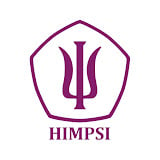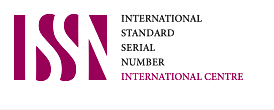Dampak Adiksi Media Sosial terhadap Penerimaan Diri dan Kelekatan dalam Relasi Sosial (Adult Attachment)
Abstract
Keywords
Full Text:
PDFReferences
(2019, Desembert 11). Indonesia Digital 2019 : Media Sosial. Retrieved from websindo.com: https://websindo.com/indonesia-digital-2019-media-sosial/
Berger, E. M. (1963). The Relation Between Expressed Acceptance of Self and Expressed Acceptance of others. Journal of Abnormal and Social Psychology , 778-782.
Bowlby, J. (1983). Attachment and Loss. New York: Basic Books.
Chak, K., & Leung, L. (2004). Shyness and Locus of Control as Predictors of Internet Addiction and Internet Use. CyberPsychology & BehaviorVol. 7, No. 5, https://doi.org/10.1089/cpb.2004.7.559.
Durm, M., & Glaze, P. (2001). Construct Validity for Self-Acceptance and Fear of Negative Evaluation. Sage Journal Vol 89, Issue 2, https://doi.org/10.2466/pr0.2001.89.2.386.
Griffiths, M. (2018). Adolescent Social Networking: How Do Social Media Operators Facilitate Habitual Use? Educational dan Behavior Journal. Vol. 36 No. 3, 66-69. ISSN 2049-3665.
Hazan, C., & Shaver, P. (1994). Attachment as an Organizational Framework for Research on Close Relationships. Journal Psychological Inquiry, https://doi.org/10.1207/s15327965pli0501_1.
Iqbal, M., & Nurdiani, G. (2016). Is Smartphone Addiction Related to Loneliness? Science Arena Publications, 1-6.
Kusuma, H., & Hidayati, D. (2014). Rasa Malu dan Presentasi Diri Remaja di Media Sosial. Jurnal Psikologi Teori & Terapan, 91-105.
Kwon, M., Lee, J., Wong, W., Park, J., Min , J., Hahn, C., Kim, D. (2013). Development and Validation of a Smartphone Addiction Scale (SAS). Plos One, 1-8. https://doi.org/10.1371/journal.pone.0056936.
Majorsy, U., Kinasih, D., Andriani, I., & Lisa, W. (2013). Hubungan Antara Keterampilan Sosial dan Kecanduan Situs Jejaring Sosial pada Masa Dewasa Awal. Proceeding PESAT (Psikologi, Ekonomi, Sastra, Arsitektur, (pp. 80-95).
Oldmeadow, J., Quin, S., & Kowert, R. (2013). Attachment Style, Social Skills and Facebook Use Amongst Adults. Computers in Human Behavior. Volume 29, Issue 23, https://doi.org/10.1016/j.chb.2012.10.006.
Peele, S., & Brodsky, A. (1991). Truth About Addiction and Recovery: Life Process for Outgrowing Destruction Habits. New York: Simon & Schuste.
Pertiwi, W. (2019, 02 04). Separuh Penduduk Indonesia Sudah "Melek" Media Sosial. Retrieved from tekno.compas.com: https://tekno.kompas.com/read/2019/02/04/19140037/separuh-penduduk-indonesia-sudah-melek-media-sosial
Wilson, K., Fornashier, S., & White, K. (2009). Psychological Predictors of Young Adults' Use of Social Networking Sites. Cyberpsychology, Behavior, and Social NetworkingVol. 13, No. 2, https://doi.org/10.1089/cyber.2009.0094.
Young, K. (2009). Internet Addiction: The Emergence of a New Clinical Disorder. CyberPsychology and Behavior, https://doi.org/10.1089/cpb.1998.1.237.
Young, K., & de Abreu, C. (2011). Internet Addiction : A Handbook and Guide to Evaluation and Treatment. New York: Willey & Sons.
DOI: http://dx.doi.org/10.22441/biopsikososial.v2i2.7365
Refbacks
- There are currently no refbacks.
Copyright (c) 2019 Biopsikososial : Jurnal Ilmiah Psikologi Fakultas Psikologi Universitas Mercubuana Jakarta
JBUMBand its articles is licensed under a Creative Commons Attribution-ShareAlike 4.0 International License.
Tim Editorial Office
JBUMB
Fakultas Psikologi, Universitas Mercu Buana
Jalan Meruya Selatan No. 1, Kembangan, Jakarta Barat, 11650, Indonesia
Phone: +6281318855243
Email: [email protected]
Website: https://publikasi.mercubuana.ac.id/index.php/biopsikososial/index

















